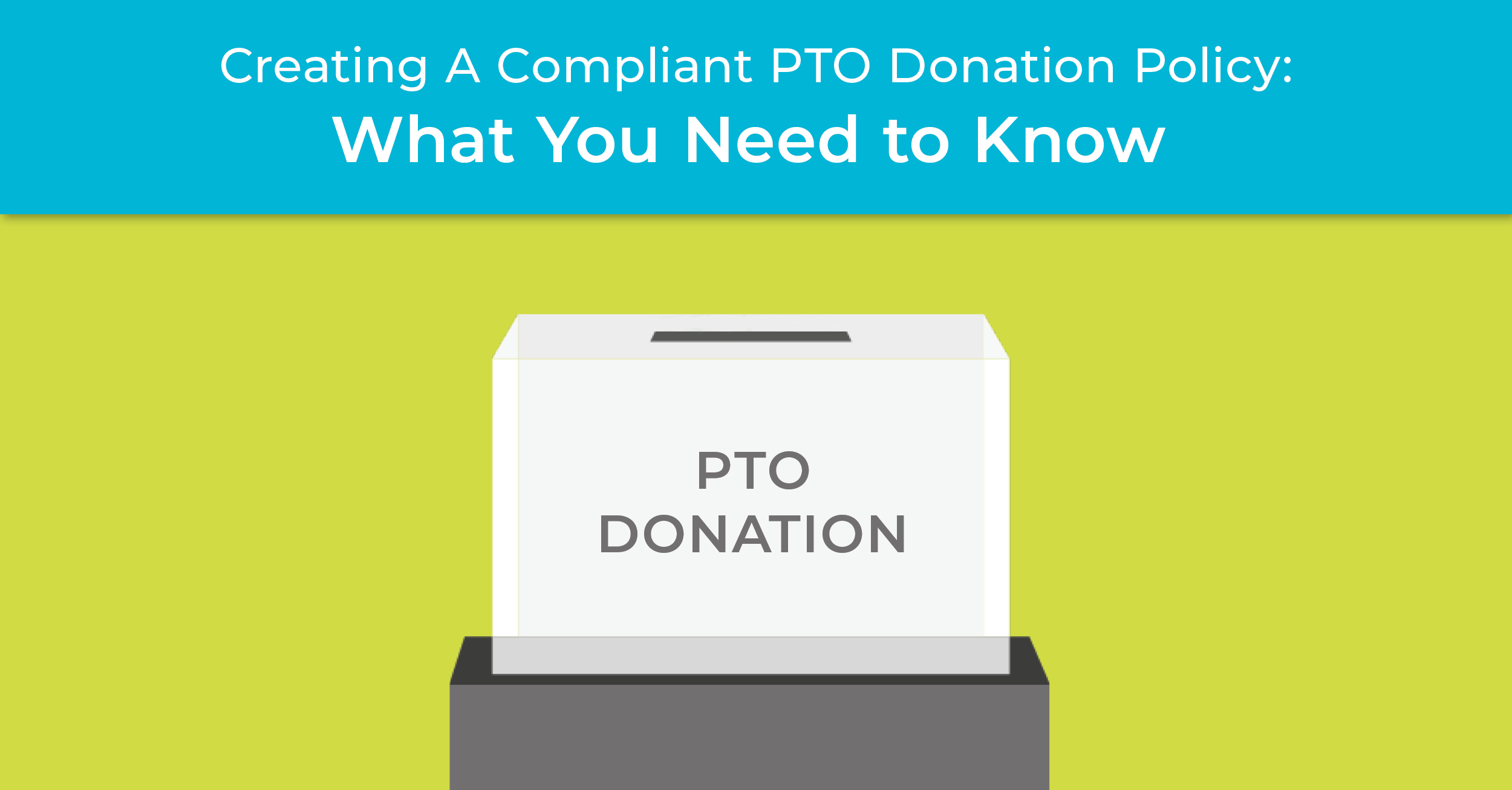The Benefits of Implementing PTO Donation Policy at Your Staffing Agency
Typically, a PTO donation program falls into three standard models:
- Leave Bank Model
Employees anonymously donate accrued paid time off to a centralized pool from which qualified recipients can apply and access PTO based on program rules.
- Leave Sharing Model
Employees donate paid time off directly to a fellow employee in response to a specific emergency outlined as part of the policy.
- Leave Donation to a Charitable Organization
Employees may donate the value of unwanted or unused paid time off to a charitable organization.
Many business owners view a PTO donation policy as an employee-friendly benefit that promotes camaraderie. Staffing agencies appreciate donating their PTO to the program without having to pay wages or the taxes and insurances associated with them. Employees appreciate reducing the overall potential risk and liability of carrying too much accrued but unused paid time.
These programs generate an added value. A PTO donation program is a corporate perk that can encourage more effective communication, increase productivity and, in some cases, lower overall absenteeism company wide. Having this type of policy in place can also prove a powerful recruiting and retention tool for companies trying to source and maintain top-tier talent.
Implementing A Compliant PTO Donation Policy Requires Careful Planning and Strategy
As a staffing agency owner, offering a PTO donation policy may seem like a no-brainer. However, creating and implementing a comprehensive, scalable, and most importantly, compliant PTO donation policy requires careful planning and strategy. Establishing and launching a program that complies with tax law, federal law, and individual state law cannot only prove complicated — it can also increase overall risk and liability for your staffing agency. The first step in implementing a policy you will manage internally should always be engaging your professional tax and legal teams’ insight prior to launching.
Three Essential Considerations Before You Launch Your Program
Additionally, because these programs can be so complex, they aren’t a great fit for every staffing agency. Understanding some of the biggest factors when implementing a PTO donation policy can help you determine if it’s the right fit for your organization. Beyond choosing the model type for your staffing agency, you should also consider three key components, such as:
- Policies
One of the first things to consider when developing a paid time off donation program is building out the policies themselves. If you’re managing the process internally, you should consult with a tax and legal advisor when developing your program policies.
- Administrative Costs
In addition to reserve capital required to cover the donated PTO, you will also need to consider the extra administrative costs required to manage the process.
- Governance
Perhaps the most crucial consideration when developing any type of paid time off program for employees is establishing a governance framework. Tax and compliance regulations aren’t just complex — they are also constantly evolving. Having a process that is routinely evaluated to ensure compliance can go a long way in mitigating potential exposure or risk.
Contact Headcount Management Today
Ready to launch a PTO donation program but aren’t sure your staffing agency is able to absorb the risk, responsibility, and cost? Headcount Management can help. Contact us today to learn more about using our Employer of Record solutions to support your staffing agency’s paid time off policies.
Be sure to download our free guide, How to Stay in Compliance: A State-by-State Guide to 2022 IRS PTO Regulations for a list of PTO legislation by each slate. Click here to get started!



